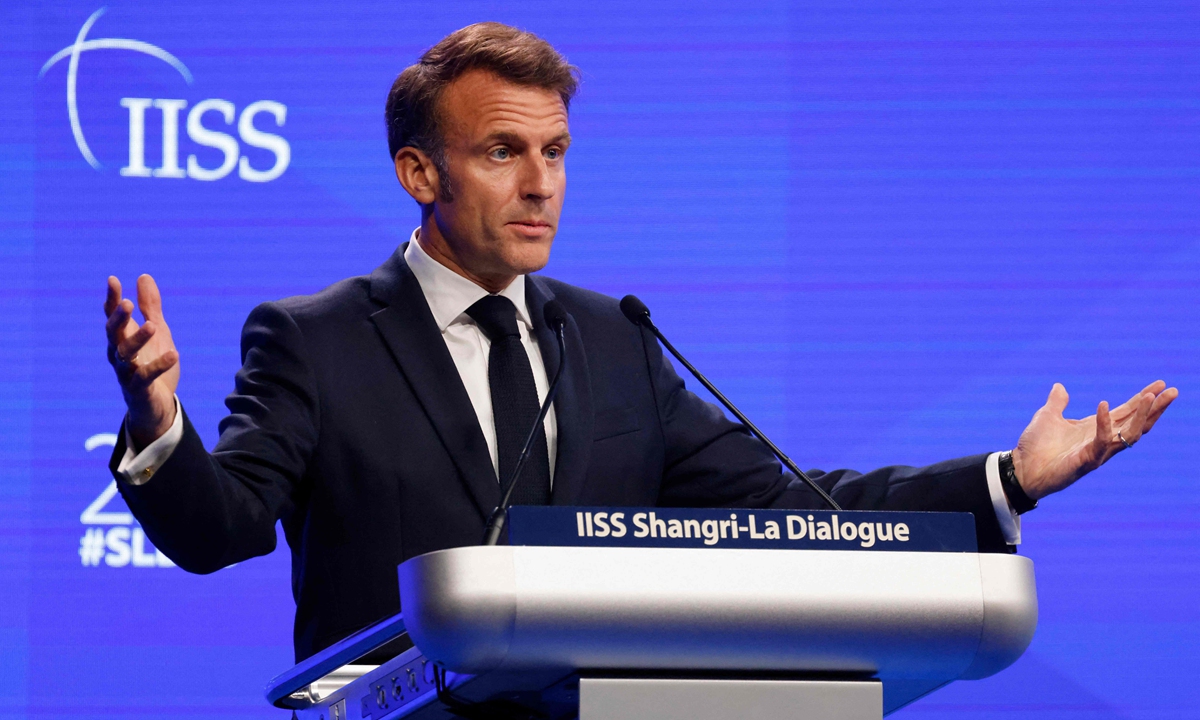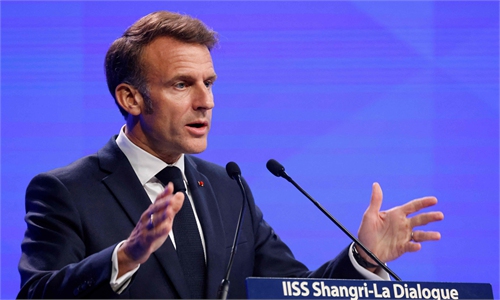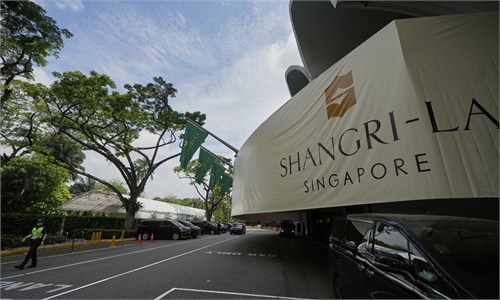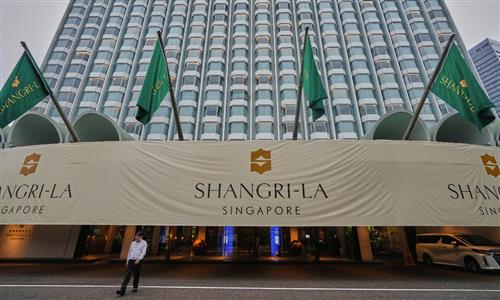France is a friend, and cooperates with China despite disagreement and competition: Macron at Shangri-La Dialogue

French President Emmanuel Macron delivers the keynote speech at the Shangri-La Dialogue in Singapore on May 30, 2025. (Photo: VCG )
In his keynote address to open the Shangri-La Dialogue on Friday, French President Emmanuel Macron stated that “I will be clear, France is a friend and an ally of the United States, and is a friend, and we do cooperate – even if sometimes we disagree and compete – with China.”Macron is the first European head of state to deliver a keynote speech at the opening of the Dialogue since it began in 2002. According to Reuters, he also said during his remarks that the division between the two superpowers, the US and China, is the main risk currently confronting the world, as he emphasized the need for building new coalitions between France and its partners in the “Indo-Pacific.”
The French president paid a two-day state visit to Singapore from Thursday to Friday, which is the third and final stop of his Southeast Asian tour, following visits to Vietnam and Indonesia. Macron wrote on social media at the beginning of his Asia trip that France is “a power of peace and balance.” “It is a reliable partner that believes in dialogue and cooperation. When some choose to withdraw, France chooses to build bridges," he said.
Wang Shuo, a professor at the School of International Relations of Beijing Foreign Studies University, told the Global Times that Macron is attempting to project France – and by extension, Europe – as a “stabilizing middle force” in Southeast Asia. He aims to present France as a “non-confrontational” and “reliable” partner for the region, the expert said.
Gao Jian, director of the Center for European Studies at Shanghai International Studies University, told the Global Times that France’s involvement in Asia-Pacific security affairs is largely based on the expectation that the region will become a core hub and engine of future global growth. France wants to ensure it is not marginalized from key global discussions in the years to come by actively asserting its presence, according to Gao.
“On the one hand, France is aware of China’s strong influence in Asia. That’s why major European powers such as France tend to be cautious when commenting on issues related to China. On the other hand, as a Western country, France is unlikely to fully align with China on issues involving Beijing’s core strategic interests. It will still seek to maintain coordination with the US and its allies,” Gao said.
Zhou Bo, a senior fellow of the Centre for International Security and Strategy at Tsinghua University, told the Global Times in Singapore at the sidelines of the Dialogue on Friday that France and other European countries have only a symbolic “presence” in the Asia-Pacific region. Due to their own challenges at home, they no longer possess the national or military power to substantively intervene in regional affairs, he noted.
The three-day 22nd Shangri-La Dialogue kicked off in Singapore on Friday evening. Organized by the London-based International Institute for Strategic Studies, this year’s event sees more than 550 delegates from over 40 countries.



